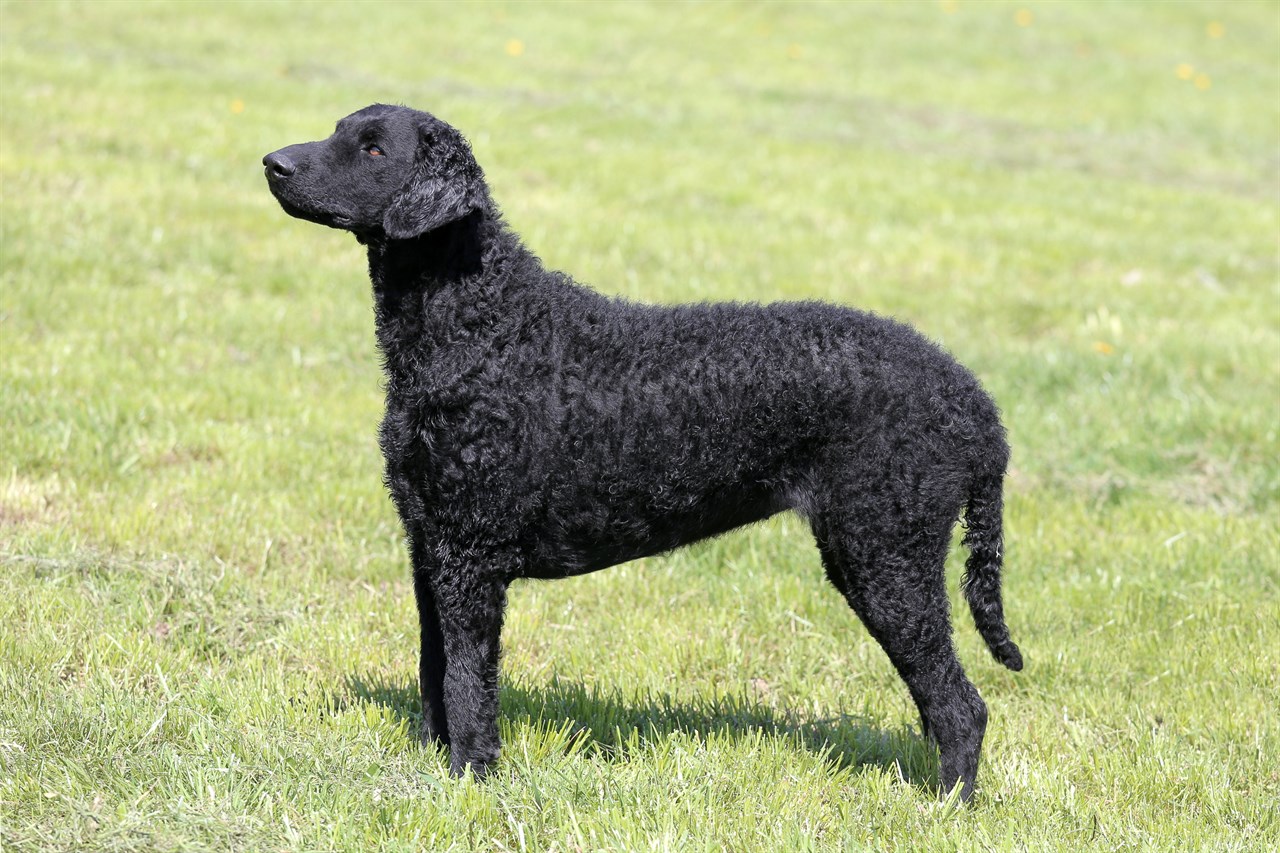Barking Habits of the Curly Coated Retriever

The barking habits of the Curly Coated Retriever, like those of any dog breed, can vary from one individual to another. Generally, Curly Coated Retrievers are not known to be excessive barkers. However, their barking tendencies can be influenced by various factors, including their environment, training, and socialisation.
Alertness
Curly Coated Retrievers have a natural sense of alertness, which means they may bark to alert their owners to unusual or suspicious sounds or activities. This alert barking can be beneficial in a home setting, as they can serve as effective watchdogs.
Socialisation
Early socialisation plays a crucial role in a dog's behaviour, including their barking habits. Properly socialised Curly Coated Retrievers are more likely to remain calm and composed in various situations, which can help reduce unnecessary barking.
Training
Consistent training and positive reinforcement can help control barking behaviour. Teaching your Curly Coated Retriever the "quiet" or "enough" command can be effective in managing their barking when it becomes excessive.
Exercise and Stimulation
Curly Coated Retrievers are energetic dogs that thrive on physical and mental stimulation. Ensuring they receive enough exercise and mental challenges can reduce boredom-related barking.
Loneliness and Separation Anxiety
Like many breeds, Curly Coated Retrievers may bark when they are lonely or experiencing separation anxiety. Providing companionship, interactive toys, and gradually increasing the time they spend alone can help alleviate this type of barking.
Environmental Triggers
Curly Coated Retrievers may bark in response to environmental triggers, such as other dogs barking in the neighbourhood, wildlife, or unfamiliar noises. Training them to remain calm in these situations can help reduce this type of reactive barking.
Communication
Dogs, including Curly Coated Retrievers, use barking as a means of communication. They may bark to express excitement, happiness, or frustration. Understanding their specific barking cues can help you respond appropriately.
Hereditary Factors
It's worth noting that some individual dogs may have hereditary tendencies to bark more or less. If you are considering a Curly Coated Retriever puppy, discussing the parents' temperament with the breeder can provide insights into potential barking tendencies.
Do Curly Coated Retrievers Bark a Lot?
Curly Coated Retrievers, as a breed, are not typically known for excessive barking. However, it's essential to remember that barking habits can vary among individual dogs. Some Curly Coated Retrievers may bark more frequently than others, depending on their temperament, upbringing, and environment.
The key to managing barking in Curly Coated Retrievers, as with any breed, is early socialisation, consistent training, and providing them with the mental and physical stimulation they need. While they may bark to alert you or communicate, excessive and incessant barking can often be addressed and controlled through proper training techniques.
If you find that your Curly Coated Retriever's barking is becoming problematic, consider consulting with a professional dog trainer or behaviorist. They can help you identify the underlying causes and implement effective strategies to manage and reduce excessive barking, ensuring a harmonious relationship between you and your canine companion.
Curly Coated Retriever puppies for sale
- Find Curly Coated Retriever puppies for sale in ACT
- Find Curly Coated Retriever puppies for sale in NSW
- Find Curly Coated Retriever puppies for sale in NT
- Find Curly Coated Retriever puppies for sale in QLD
- Find Curly Coated Retriever puppies for sale in SA
- Find Curly Coated Retriever puppies for sale in TAS
- Find Curly Coated Retriever puppies for sale in VIC
- Find Curly Coated Retriever puppies for sale in WA